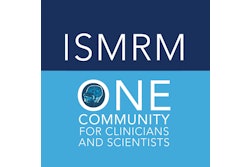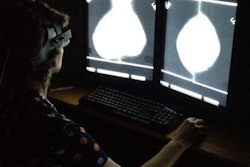Dear Artificial Intelligence Insider,
If you've attended any medical imaging-related conference lately, you know that artificial intelligence (AI) continues to progress at a rapid pace. This growth was fully evident at the recent annual meetings of the Society of Nuclear Medicine and Molecular Imaging (SNMMI) and the Society for Imaging Informatics in Medicine (SIIM).
For example, this issue's Insider Exclusive features a presentation from SNMMI 2018 that described how deep learning can classify bone lesions on F-18 sodium fluoride (NaF) PET/CT exams. The University of Wisconsin researchers believe their method could potentially enable monitoring of individual lesions and faster interpretation times for these studies.
In another presentation at last week's meeting in Philadelphia, a research group shared how AI analysis of stress SPECT myocardial perfusion imaging can be highly sensitive for all types of coronary artery disease (CAD). The group's method outperformed both visual analysis and automated total perfusion deficit analysis for predicting the presence of CAD. You can read all about it by clicking here.
Machine-learning algorithms can help predict disease-free survival in patients with soft-tissue sarcoma, according to another group from the University of Wisconsin. You can access our coverage of the study by clicking here. Could AI help avoid patient misidentification on PET/CT studies? Yes, it can, according to researchers from Hokkaido University in Japan. Click here to learn more.
There was no shortage of AI content, of course, at SIIM 2018, which was held May 31 to June 2 in National Harbor, MD. Researchers reported, for example, that a deep-learning algorithm can be highly sensitive and specific for detecting brain hemorrhage on noncontrast head CT studies and could automatically identify radiation-induced cerebral microbleeds on brain MRI scans. Other talks detailed how radiologists can make the most of AI software in breast ultrasound and how radiology AI fits into value-based healthcare.
We also discussed AI topics during Facebook Live videos at SIIM 2018 with Dr. Curt Langlotz, PhD, of Stanford University; Dr. Bibb Allen Jr. of the American College of Radiology Data Science Institute; and SIIM Chair Paul Nagy, PhD.
Meanwhile, the International Society for Magnetic Resonance in Medicine (ISMRM) also believes it has a role to play in imaging AI. ISMRM President Dr. Daniel Sodickson, PhD, recently told our sister site AuntMinnieEurope.com that although the current AI landscape is like the Wild West, the society can act as the sheriff by providing vital scientific rigor, balance, and a healthy dose of skepticism. Click here to learn why Dr. Sodickson believes the ISMRM is well-positioned to play this role.
Speaking of MRI, an AI algorithm developed by researchers from the Massachusetts Institute of Technology can register MRI scans roughly 1,000 times faster than standard methods. How did they achieve those results? Click here to find out.
In other AI news, a team of authors led by Dr. Garry Choy of Harvard Medical School recently offered their opinions on how machine learning will affect the practice of radiology. Researchers from Oak Ridge National Laboratory have also used AI technology to analyze how radiologists read mammograms. What did they find? Click here for all of the details.
Is there a story you'd like to see covered in the Artificial Intelligence Community? Please feel free to drop me a line.




















